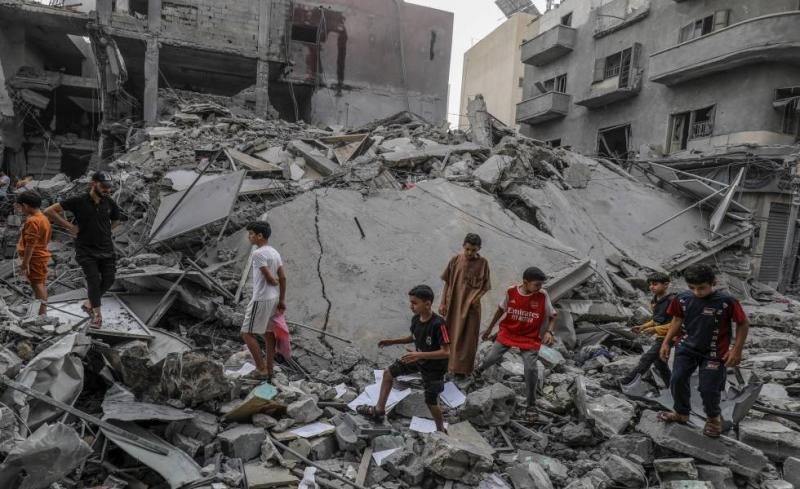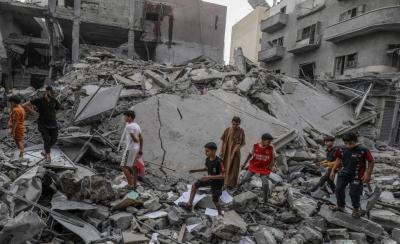Medical officials in Gaza are turning to volunteers to help manage the emergency services, which are on the brink of collapse amid ongoing Israeli attacks. Ambulances struggle to navigate through debris to reach bombed sites, all while fuel supplies are critically low. Medical teams and emergency crews are working without adequate rest, deployed in the most dangerous areas to witness the horrors of death and severe injuries, along with their accompanying tragedies.
The Gaza Health Ministry has called upon all those trained in first aid to assist hospitals and emergency teams. Despite dozens responding, the system remains in desperate need of more workers. Louay Al-Astal, a volunteer emergency worker in Khan Younis in the southern Gaza Strip, stated, "I haven't returned home since the first day of the war. Here, I bathe, sleep, and eat."
Health authorities in the Hamas-controlled sector report that Israeli airstrikes and artillery bombardments have claimed more than 8,000 lives since October 7, when Hamas fighters breached security barriers, killing over 1,400 Israelis and taking more than 200 hostages. Following the start of Israel's ground operations on Friday, many residents of Gaza fear the extent of destruction will increase.
Israel has ordered civilians to leave the northern half of the Gaza Strip and move south, but continues its heavy bombardment of the area, and many refuse to leave. Bombing along the main road between northern and southern Gaza on Monday fragmented the territory further, with attempts to flee south now at risk of airstrikes. The Health Ministry reported that 116 medical personnel have been killed in the ongoing attacks, along with 18 civil defense rescuers.
Al-Astal, who trained in first aid while at university but remained unemployed until the war began, recounted an incident where some of his colleagues nearly lost their lives during an airstrike that shattered the windows of their ambulance. "The car's glass shattered, and some volunteers were injured," he said. He also recalled the memory of attempting to save a woman buried up to her neck after an airstrike. Al-Astal (33) said, "Her head was injured, and I rushed to treat the wound." She had asked him to free her from the rubble to find her son, but she died minutes later while still trapped. "I feel sorrow because I couldn't save her," he added.
Naseem Hassan, the ambulance service supervisor in Khan Younis, noted that the service can no longer handle the cases, and there is a need for trained paramedics. "We opened the door for volunteers, and many young people have responded to this call, serving since the start of the war."
In addition to the bombardment, Israel has imposed a blockade on the 2.3 million residents of the Gaza Strip, leading to a cutoff in electricity and fuel supplies. Limited shipments of food and medical assistance have entered Gaza since last week due to international pressure on Israel.
Volunteer driver Sari Al-Najjar said, "Ambulances are about to stop working as our remaining fuel is very limited. We are facing communication problems, and we lose contact with ambulances leaving this headquarters." Phone and internet services in Gaza were nearly cut off for two days at the beginning of the week with the entry of Israeli tanks into the area. Communications have slowly been returning since Sunday.
Without reliable power supplies, many residents cannot charge their phones, complicating rescue teams' efforts to locate and coordinate operations. Thousands of people have gathered in hospitals in the city of Gaza, where many have taken refuge in temporary tents, hoping for some safety from shelling. Medical officials reported that airstrikes near major hospitals in Gaza City, including Shifa, Al-Quds, and the Turkish Friendship Hospital, have caused damage.
Israel accuses Hamas of placing command centers and weapons near hospitals, a claim the group denies. Hatem Sultan, who lives near Shifa Hospital, the largest medical center in the enclave where ambulances constantly arrive with casualties from airstrikes, questioned where people can seek refuge. "Where should we go? Death is an inevitable fate," he said.




